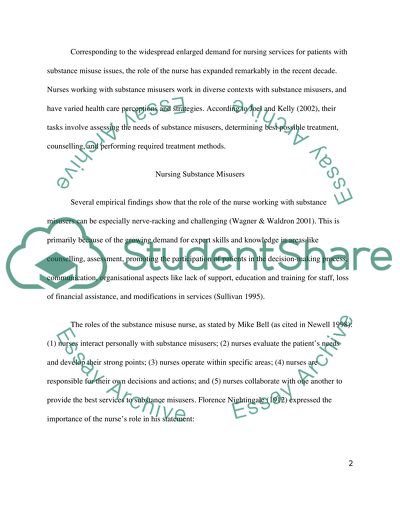Cite this document
(“ROLE OF THE NURSE IN SUBSTANCE MISUSE Literature review”, n.d.)
Retrieved from https://studentshare.org/gender-sexual-studies/1421937-role-of-the-nurse-in-substance-misuse
Retrieved from https://studentshare.org/gender-sexual-studies/1421937-role-of-the-nurse-in-substance-misuse
(ROLE OF THE NURSE IN SUBSTANCE MISUSE Literature Review)
https://studentshare.org/gender-sexual-studies/1421937-role-of-the-nurse-in-substance-misuse.
https://studentshare.org/gender-sexual-studies/1421937-role-of-the-nurse-in-substance-misuse.
“ROLE OF THE NURSE IN SUBSTANCE MISUSE Literature Review”, n.d. https://studentshare.org/gender-sexual-studies/1421937-role-of-the-nurse-in-substance-misuse.


